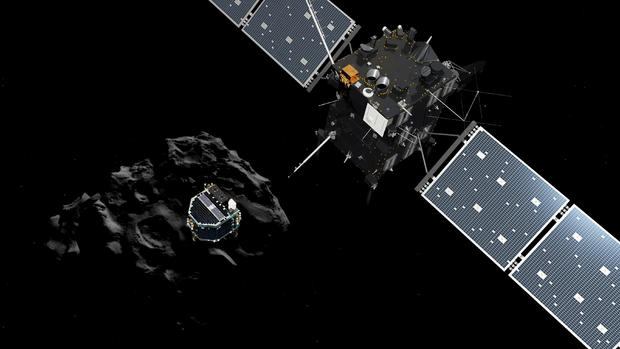"The golden age of planetary exploration"
For the first time in history, a spacecraft has landed on a comet. The lander Philae detached from its parent spacecraft Rosetta and bounced at least twice before touching down.
For many, the success of this decade-long mission represents the astounding possibilities of new research and discoveries, but others are still wondering, why a comet?
"People have cared about comets as long as we've known there have been people," NASA astronaut John Grunsfeld said on "CBS This Morning." "There are ancient Chinese writings of guest stars, portending bright futures or future wars or crops."
Now scientists hope to learn about the structure and composition of the comet, mainly determining if water in the comet has a similar makeup to the water that makes up our Blue Planet.
"In recent times we've learned that comets are the building blocks of our solar system," he said. "They may be our only Rosetta Stone of what we're made of, the water that we're made of, the organics. It could be that comets are a source of water on Earth."
And while much excitement has surrounded the spacecraft's ability to land on a comet traveling 40,000 mph, that's not what had astronauts like Grunsfeld on his toes.
"The speed was not that much of a factor because the spacecraft Rosetta and Philae was going the same speed as the comet, so from the spacecraft's perspective it was gently floating down," he said. "But it takes about 28 minutes for the signal to get from the space craft back to Earth, so we were all spectators."
But with the spacecraft successfully landed on the comet, Grunsfeld looks forward to the next mission with the ESA in 2016, "OSIRIS-Rex."
"It's going to do a touch and go landing on an asteroid, the first time we've done that, and bring pieces back," he said. "This is absolutely the golden age of planetary exploration."
